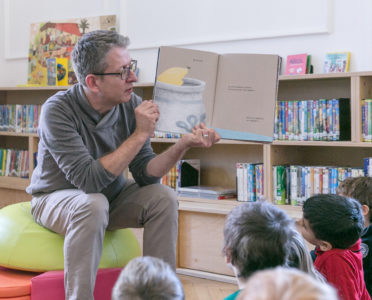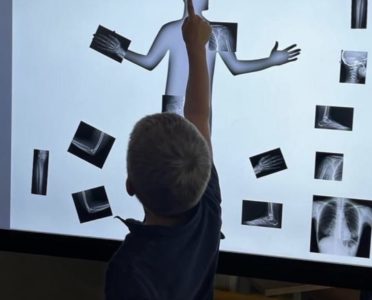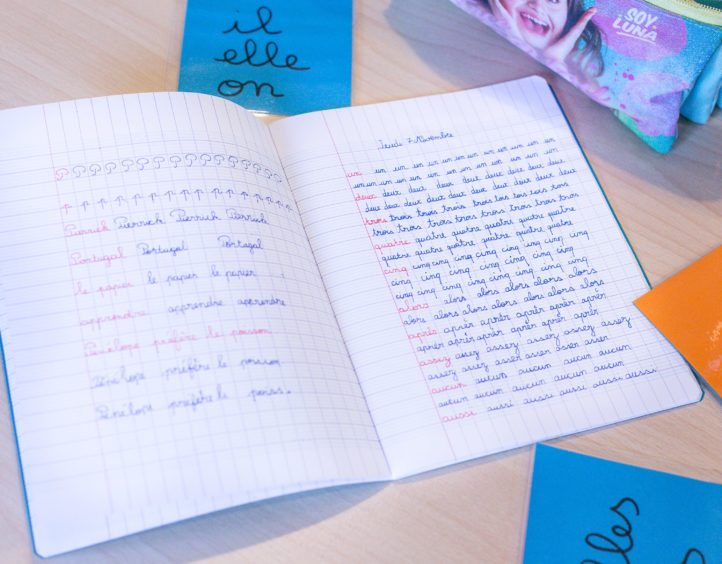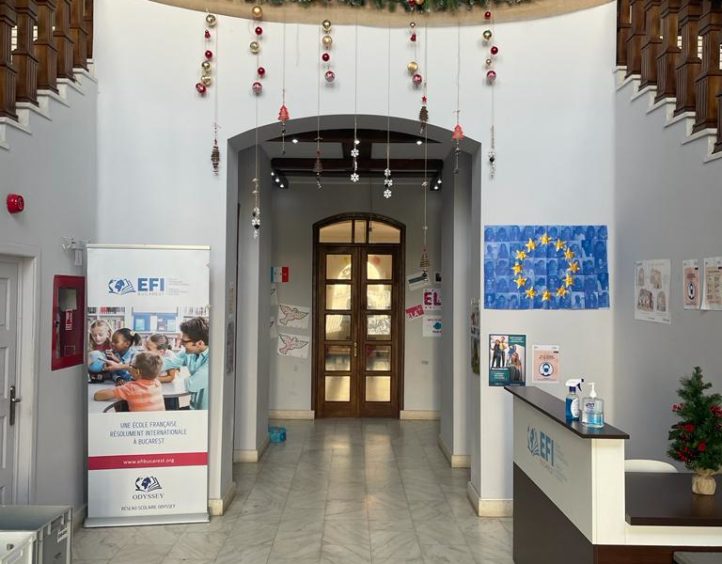Language teaching
trilingual school
EFI Bucharest is a trilingual school whose reference languages are French, English and Romanian. More specifically, this means that after completing their studies, our pupils are able to express themselves in these three languages, both orally and in writing, and, in turn, fully understand their socio-cultural dimensions and behavioural norms.
Each of these three languages is key to our school’s identity and values, having placed bilingual education at the heart of our educational approach and designed a programme based on immersion, progression, decompartmentalisation and active teaching methods.
French is our primary language and academic reference.
Over half of our classes are taught in French, which is also the main language spoken throughout our school. Students are assessed primarily on this language, which forms the basis of the academic programme in primary and high school.
English is our second reference language
As a language of international communication and also a language of culture, proficiency in English is now essential in the modern world and offers our pupils a considerable advantage.
Romanian, the language of our host country,
Romanian has a central place in our school, where it is taught to all students, whatever their nationality, with the number of classes being adapted according to their profile.
multilingual teaching
Why choose multilingual teaching?
From a very early age, pupils get used to learning with several teachers and switching from one language to another. They develop skills and learn to adapt in a way that will be invaluable in their future studies.
Many studies have shown that multilingual students demonstrate:
- a greater ability to deal with several subjects simultaneously,
- better attention to detail,
- a well-trained memory,
- stronger social skills.
Multilingual education also helps improve students’ cultural and intellectual construction skills. It prepares them for a successful career both in Romania and across the world.
Early and daily teaching of foreign languages
In addition to French, EFI Bucharest has chosen to teach English and Romanian from prekindergarten age (2 years old – TPS).
Young children can hear the entire range of sound frequencies, (which vary considerably between languages) but from the age of 7 or 8, they gradually start to lose this ability.
Moreover, children also tend to be less inhibited and more spontaneous. Following a period of adjustment, they are less afraid of making mistakes, which is a major asset in language learning.
After a few months, they gain confidence and start to enjoy the lessons, two key factors in learning.
weekly teaching
In order to ensure rapid and continuous progress throughout kindergarten and then primary school, the amount of time spent teaching in English or Romanian is gradually increased each year to account for 40% of class time.
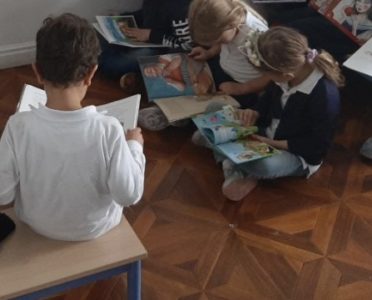
Primary Year 3 (CE2)
French: 18.5 hours
French-English Co-teaching: 1 hour
English: 5.5 hours
Romanian: 2.5 hours
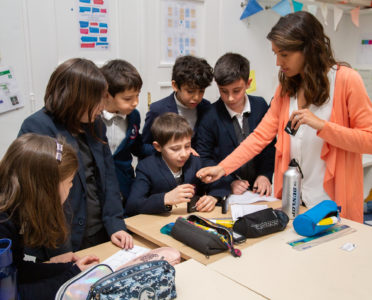
Primary Year 4 (CM1) and Primary Year 5 (CM2)Primary Year 4 (CM1) and Primary Year 5 (CM2)
French: 18 hours
French-English Co-teaching: 1 hour
English: 6 hours
Romanian: 2.5 hours
Trinomials of teachers
Qualified international teachers working in teams of three
Therefore, each class is assigned three teachers who work in coordination:
- a main teacher who teaches in French
- an English-speaking teacher
- a Romanian-speaking teacher
These three teachers may sometimes work together, i.e. with two teachers present in class at the same time.
This system requires a carefully planned and flexible timetable to prevent school days from becoming too busy and an overloading of work in the various languages.
EFI Bucharest thus brings together the education of three cultures. Within the three-teacher team, the French teacher manages the coordination, ensuring that the curriculum is being correctly followed.
rigorous programme
that allows plenty of scope for active teaching methods.
In trilingual education, establishing links between language learning and the acquisition of multi-disciplinary knowledge is essential. Thus, pupils do not only “learn English”, they also “learn in English”.
In kindergarten
un and interactive activities are at the heart of our teaching programme, placing pupils in the thick of the action (doing) and at the centre of their success (acknowledging what they have managed to achieve): games, songs, handling objects, performances, etc.
in the first year of primary school - CP
Pupils learn to read and write in English and Romanian once they have mastered reading and writing in French (i.e. in the first year of primary school – CP). They then adapt quickly to learning English and Romanian.
From year 3 (CE1) to year 5 (CM2)
From year 3 (CE1) to year 5 (CM2) of primary school, pupils spend more time learning these languages. Teaching is based on the content of our two reference programmes (the English National Curriculum and official Romanian programmes). At this point, certain subjects are taught directly in English and Romanian: arts, sciences, etc.
personalized follow-up
The EFI is setting up a Livret Scolaire Unique (Individual School Record) taking into account the specific trilingual approach of the school. However, to ensure that pupils learn the fundamentals of the French national education system, the French teacher conducts specific personalised evaluations, focusing on the acquisition of language and core written skills in French.
skill groups
Learning by skill groups
Based on tests that are taken at the time of admission, and then assessments completed throughout the school year, language teaching is organised by group, ensuring that each student follows the most appropriate course of study for their own development.
From the first year of primary school (CP) onwards, English is categorised into three main levels: Starter/Intermediate/Flyer
Romanian language classes are divided into 2 levels:
- Romanian, mother tongue (Limba maternă)
- Romanian, language discovery (Descoperire)
Regular language immersion activities for students
Trilingualism and an international orientation are central to the school’s approach. Whether in class, or through educational projects and extra-curricular activities, the school is constantly building bridges between languages and culture. For example: posters in the school written in three languages, twinning with classes from another school in the Odyssey network, studying certain texts in all three languages, organising cultural projects that combine French, English and Romanian, etc.
language certifications
Preparing for language certifications
Our pupils prepare for benchmark language certifications throughout the course of their education. Compliant with the CECRL (Common European Framework of Reference for Languages), these language exams objectively measure their proficiency and, more importantly, highlight the fact that their educational experience has been geared towards university studies.
At the end of primary school, some pupils prepare for French and English certifications:
French
DELF PRIM’
English
Young Learners English Tests
Our pupils go on to study a third foreign language as part of our secondary education programme (Junior High and High School), providing the best possible preparation for language certifications.
English
KET, PET, FCE, CAE, IELTS, TOEFL
French
DELF

